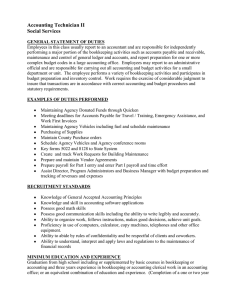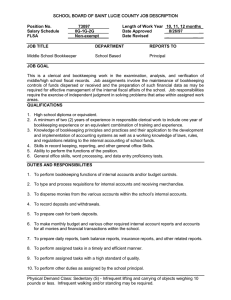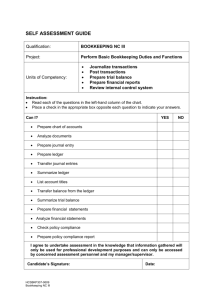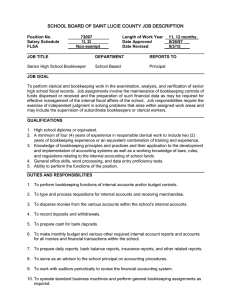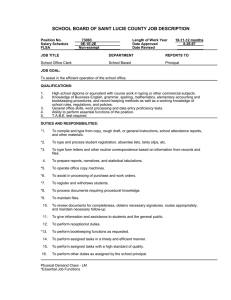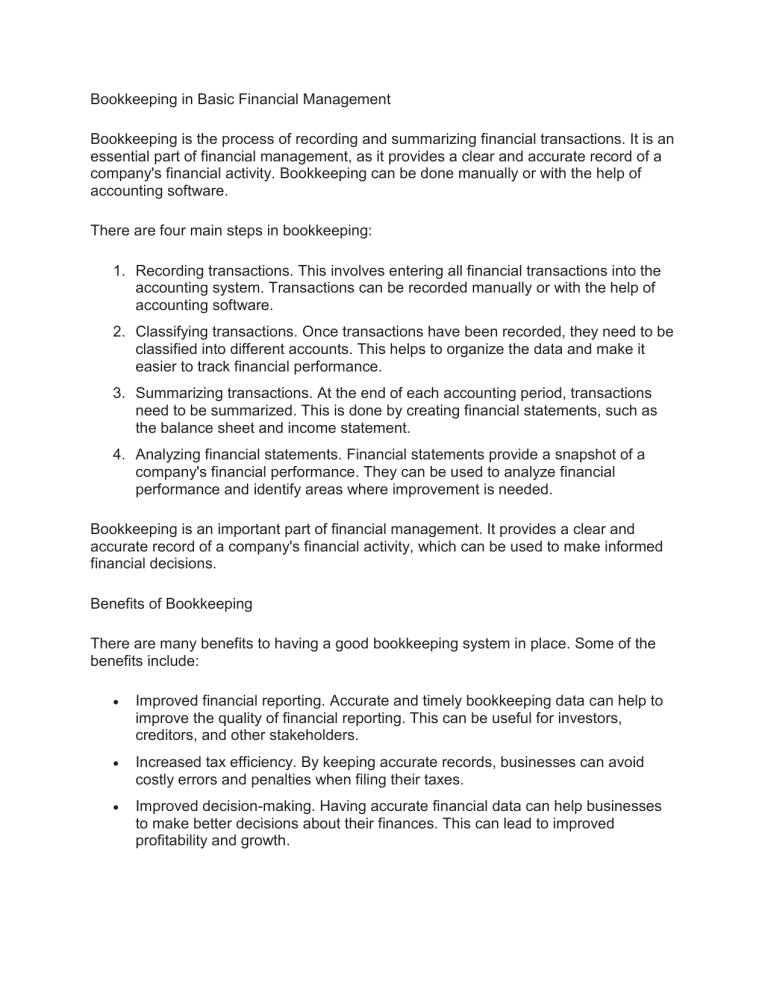
Bookkeeping in Basic Financial Management Bookkeeping is the process of recording and summarizing financial transactions. It is an essential part of financial management, as it provides a clear and accurate record of a company's financial activity. Bookkeeping can be done manually or with the help of accounting software. There are four main steps in bookkeeping: 1. Recording transactions. This involves entering all financial transactions into the accounting system. Transactions can be recorded manually or with the help of accounting software. 2. Classifying transactions. Once transactions have been recorded, they need to be classified into different accounts. This helps to organize the data and make it easier to track financial performance. 3. Summarizing transactions. At the end of each accounting period, transactions need to be summarized. This is done by creating financial statements, such as the balance sheet and income statement. 4. Analyzing financial statements. Financial statements provide a snapshot of a company's financial performance. They can be used to analyze financial performance and identify areas where improvement is needed. Bookkeeping is an important part of financial management. It provides a clear and accurate record of a company's financial activity, which can be used to make informed financial decisions. Benefits of Bookkeeping There are many benefits to having a good bookkeeping system in place. Some of the benefits include: Improved financial reporting. Accurate and timely bookkeeping data can help to improve the quality of financial reporting. This can be useful for investors, creditors, and other stakeholders. Increased tax efficiency. By keeping accurate records, businesses can avoid costly errors and penalties when filing their taxes. Improved decision-making. Having accurate financial data can help businesses to make better decisions about their finances. This can lead to improved profitability and growth. Reduced risk. By having a good bookkeeping system in place, businesses can reduce their risk of financial fraud and errors. This can help to protect their assets and reputation. Conclusion Bookkeeping is an essential part of financial management. It provides a clear and accurate record of a company's financial activity, which can be used to make informed financial decisions. By having a good bookkeeping system in place, businesses can improve their financial performance, reduce their risk, and make better decisions.
